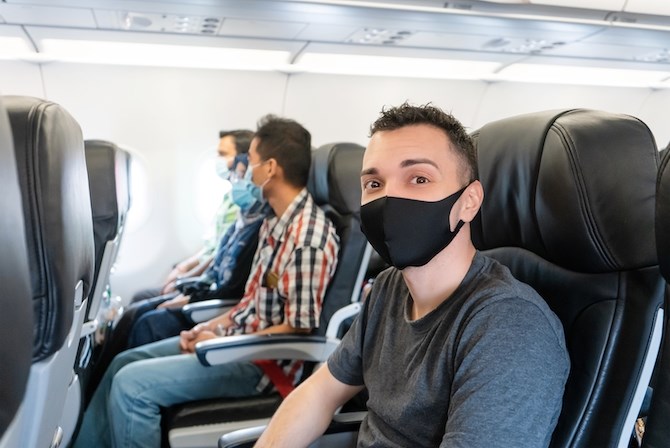
Image Credit: ADOBE STOCK
October 31, 2020 - 1:00 PM
B.C.’s Provincial Health Officer Dr. Bonnie Henry has strongly reccomended wearing masks in indoor public spaces but that hasn't stopped the confusion.
Unlike some jurisdictions, this is not an order, just an expectation because she, and other health officials, continue to stress that masks are important but can't be used in isolation.
They must accompany physical distancing, hand washing and staying at home when sick. The trouble with masks is people thinking they are safe with them.
“People put too much faith on masks,” Interior Health Medical Health Officer Dr. Silvina Mema said in an email to iNFOnews.ca. “Masks are the lowest in the hierarchy of interventions.”
Still, she agrees with Dr. Henry that they can be useful tools.
“Wearing non-medical masks is appropriate when physical distancing cannot be maintained," Dr. Mema said in an earlier interview. "Non-medical masks can protect others by keeping droplets close to the person wearing the mask.”
Dr. Henry was later than many other health officials in advocating for masks. She said in her experience, masks complicated matters because people tended to fiddle with them, meaning they are touching their face possibly transferring droplets from face to hand.
They also offer comfort to others by letting them know you are keeping your droplets to yourself.
Here’s some of what the B.C. Centre for Disease Control says about masks.
“Using only a mask is not enough to prevent the spread of COVID-19,” one of its web pages states. “Wearing a mask when you are sick, helps protect people around you from the droplets that carry the virus. However, wearing a mask while sick does not change the need to stay home. If you cannot physically distance yourself from others at home, a mask can help prevent the spread of germs within the household.
“Wearing a cloth mask might not protect you from COVID-19, but it is a good option in situations where you cannot keep a safe distance from others for an extended period of time, such as when you are on transit, getting a haircut or visiting someone indoors.”
Children under the age of two should not wear masks because their airways are small and a mask could become a choking hazard.
The World Health Organization recommends that children under five not be required to wear masks, in part because they may not be able to use the mask appropriately with minimal assistance.
In B.C. elementary schools, masks are not mandated.
The World Health Organization says various factors should be considered before asking children six to 11 to wear masks, including their ability to do so safely with minimal supervision.
It also says things like the impact on learning and psychological development play a role.
But, do masks really make a difference in controlling the spread of COVID-19?
A study published in June by researchers from the University of Toronto and Virginia Commonwealth University looked at death rates in countries where wearing masks was made mandatory early in their pandemic outbreaks.
Countries like South Korea, Japan, Thailand, Vietnam, Taiwan, Slovakia and Venezuela all mandated masks early on.
While that was published in June, those countries still have some of the lowest rates of death per 100,000 population in the world. Out of this list of countries, Taiwan is the lowest at .03 while Slovakia is highest at 3.23.
Canada is at 27.12 deaths per 100,000, the U.S. at 69.29.
To contact a reporter for this story, email Rob Munro or call 250-808-0143 or email the editor. You can also submit photos, videos or news tips to the newsroom and be entered to win a monthly prize draw.
We welcome your comments and opinions on our stories but play nice. We won't censor or delete comments unless they contain off-topic statements or links, unnecessary vulgarity, false facts, spam or obviously fake profiles. If you have any concerns about what you see in comments, email the editor in the link above.
News from © iNFOnews, 2020